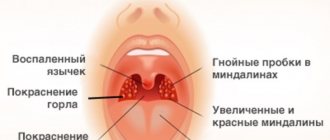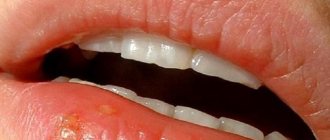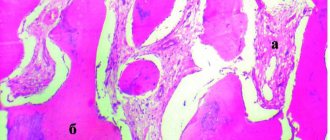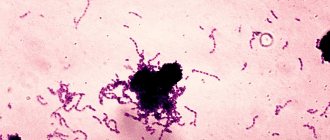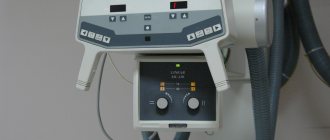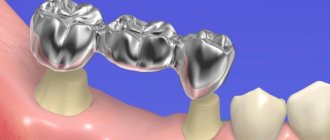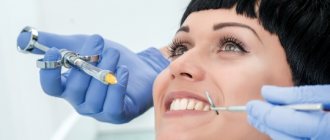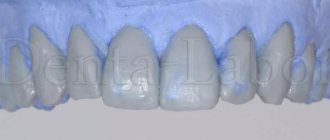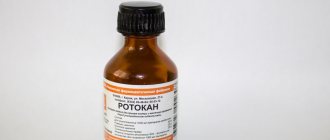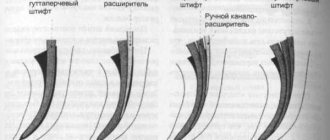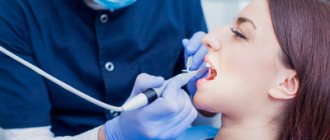Often, the dentist prescribes antibiotics to the patient after the removal of a wisdom tooth in order to avoid unpleasant consequences or complications. The main indicators of antibiotic therapy include the development of the inflammatory process in the formed hole. More information about the choice of antibacterial drugs will be discussed in this article.
Antibiotics after wisdom tooth removal
Is it worth taking them?
Taking antibacterial drugs after removing the figure eight is necessary to relieve pain or at least to minimize it. Antibiotics are also necessary to prevent the development of the inflammatory process. Typically, antibiotics are used in the form of solutions, injections, ointments or tablets. They resort to their use only in extreme cases, when conventional drugs are unable to cope with inflammation or suppuration.
Pain after wisdom tooth removal
Antibacterial drugs are prescribed in the following cases:
- if the wall of the hole formed after tooth extraction is damaged and this can provoke an infectious inflammation that will eventually affect most of the bone;
- care of the hole after removal was insufficient. That is, ignoring antiseptic solutions for mouth rinsing can lead to the fact that small particles of food can accumulate in the hole, which is why pathogenic bacteria will multiply there;
- with a weakened immune system, the stress that occurs during tooth extraction can reduce the patient’s oral defense against infection;
- failure of the blood clot that closes the entrance to the formed hole can cause the infection to spread throughout the body.
Wisdom tooth removal is perhaps one of the most difficult dental operations, so doctors often prescribe various antibiotics to patients to relieve painful symptoms. It is worth noting that antibacterial drugs are used not only after the procedure, but also before it.
Wisdom tooth removal
The main factors why doctors prescribe antibiotics after tooth extraction:
- when there is a possibility of gumboil or pustules developing in the patient’s gums after removal surgery;
- if the integrity of the gum tissue has been compromised;
- when bleeding or other complications appear that cannot be eliminated without the use of antibacterial drugs;
- the presence of one or more chronic diseases;
- weak immunity.
If at least one of the above factors is present, the doctor resorts to the use of antibiotic drugs. But these are not all the reasons. There are other indications for the use of antibiotics. More on this below.
Antibiotics
Side effects
Long-term use of antibiotics may cause side effects
Their manifestation can be triggered by incorrect selection and prescription of the drug, as well as if the rules for its use have been violated.
The pharmacodynamics of antibiotics is based on the absorption of the active substances of the drug by the intestines, followed by its distribution throughout all tissues of the body.
The active substances of the antibiotic undergo breakdown in liver cells and, together with bile, feces and urine, are excreted from the body.
With long-term use of the drug, the following side effects may occur:
- Development of dysbacteriosis or candidiasis.
- Attacks of nausea.
- Vomiting.
- Inflammatory processes in the oral cavity.
- Allergic dermatitis on the skin of the body and face.
- Minor vascular bleeding in the oral cavity.
- Kidney and liver dysfunction.
- Weakening of the body's protective functions.
Important! If side effects occur, you should immediately stop taking the drug and replace it as prescribed by your doctor.
Indications for use
If a secondary inflammatory process develops, it is, of course, necessary to take antibiotics after wisdom tooth removal. We are talking about damage to the periosteum, trigeminal nerve, alveolar ridge of the patient's jaw and socket tissue, which can cause serious complications.
How to take antibiotics after tooth extraction
These complications primarily include:
- alveolitis The main symptom of this disease is 2-day pain in the area of the socket that appears, general weakness of the body and fever;
- periodontitis. Occurs due to an inflammatory process that affects the periodontal gum tissue;
- periostitis. A fairly serious disease that occurs as a result of inflammation of the periosteum of the jaw. Often the disease is accompanied by flux, that is, swelling of a person’s facial tissues;
- osteomyelitis. A dangerous complication after tooth extraction, accompanied by the appearance of fistulas through which purulent mass from the patient’s gums comes out.
Flux on the gum
On a note! For patients suffering from problems with blood clotting, cancer and high blood sugar, antibiotics must be prescribed. This is due to the fact that the weakened immune system of patients is not able to fight the development of infection.
Why is antibiotic therapy needed after wisdom tooth extraction?
Prescription of antibiotic therapy after figure eight extraction is common. Taking such medications is absolutely necessary to prevent the development of inflammatory processes and provide pain relief.
Antibiotics are indicated for the following pathological processes:
- Taking antibiotics is necessary to prevent the development of inflammatory processes and relieve pain
Violation of the integrity of the walls of the hole.
- Low level of immune defense of the body.
- Thrombus failure.
- Parallel occurrence of chronic pathologies.
- Opening of bleeding after tooth extraction.
- Inflammation of the alveolar ridge of the jaw.
- Damage to the ternary nerve.
- Development of periodontitis.
- Periostitis and its complications in the form of flux development and swelling of facial tissues.
- Infectious purulent-necrotic inflammation of bone tissue, which is manifested by the release of purulent exudate from the gums.
Important! When diagnosing a patient with oncological and hematological diseases, as well as diabetes mellitus of any type, the prescription of antibacterial drugs is mandatory. This is due to a low level of immune defense. In this condition, the body cannot fight the infection on its own.
What drugs do doctors prescribe?
Many different drugs offered by modern medicine are used in dental practice as a post-operative intervention. People have most likely heard about many antibacterial drugs from advertising, but not all of them can help. Below are the drugs that doctors most often recommend using after removal of the figure eight.
- Wisdom tooth hurts
Table. Review of the most common drugs.
| Name of the drug, photo | Description |
| Flemoxin | An effective drug with a wide spectrum of action, the active substance in which is penicillin. The use of this antibiotic will relieve inflammation and reduce the patient’s body temperature. The duration of treatment and dose are determined only by the attending physician. |
| Lincomycin | Used in dentistry to treat many diseases. Often used after wisdom tooth extraction. It is not recommended to use Lincomycin in patients suffering from liver or kidney disease, or during pregnancy. |
| Sumamed | An antibacterial drug available in the form of tablets, syrup or capsules. Has anti-inflammatory and bactericidal properties. The product has some contraindications. For example, it should not be taken by patients who have individual intolerance to certain components. Side effects are extremely rare. |
| Amoxicillin | An excellent anti-inflammatory drug that prevents the development of infection in the body. It is used in medicine as a broad-spectrum agent, so it can be prescribed not only to adult patients, but also to children. |
| Amoxiclav | A combination drug that doctors prescribe to patients of all age groups. The active substance is penicillin, so before using the drug you need to check whether the patient is allergic. It is not recommended to take Amoxiclav for patients suffering from renal failure. |
| Azithromycin | An antibacterial drug used in the treatment of large areas of inflammation. If you are highly sensitive to individual components of this product, it is not recommended to use it. The same applies to patients suffering from problems with the kidneys and liver. |
All of the above drugs have an analgesic and anti-inflammatory effect on the body. These are potent drugs, so you should not take them on your own. Otherwise, serious complications may arise in the form of other pathologies.
View of the socket of an extracted wisdom tooth
Video: Antibiotics after tooth extraction
What antibiotics do dentists prescribe?
The modern pharmacological market is represented by a wide range of antibacterial agents that can be used in the postoperative period.
Due to their high therapeutic effect, the following types of antibiotics are most popular among dental specialists:
| Name | Brief description of technique and action | average price |
| Lincomycin | An antimicrobial agent belonging to the lincosamide group. When taken in a large dosage, it has an additional bactericidal effect. They are characterized by a wide spectrum of action against many types of microorganisms. Pharmacological form of release: injections and tablets. | Table – 150 rub. Ampoules – 90 rub. |
| Flemoxin | Has a wide spectrum of action. The active substance is penicillin, which effectively relieves inflammation and lowers body temperature. Available in the form of tablets and suspensions, which makes it easier for children to take the medicine. | 318 rub. |
| Amoxicillin | A broad-spectrum antibacterial drug belonging to the penicillin group. The active ingredient is amoxicillin trihydrate. Has a bactericidal effect. Used in the treatment of many dental pathologies in children and adults. Produced in the form of suspensions, capsules and tablets. | Table – 55 rub. Caps – 80 rub. Suspensions – 142 rub. |
| Sumamed | It belongs to the new generation of antibacterial drugs and has a wide spectrum of action. The active substance azalide acts bacteriostatically, destroying gram-positive and some anaerobic microorganisms, gram-negative bacteria. The antibiotic is not used to eliminate erythromycin-resistant gram-positive bacteria. | Table – 315 rub. Dispersing tablets – 810 rub. Capsules – 480 rub. Powder – 264 rub. |
| Amoxiclav | A combined antibiotic drug consisting of semi-synthetic penicillin and clavulanic acid. It has a therapeutic effect in diagnosing infectious and inflammatory pathologies. Active against many gram-positive and gram-negative microorganisms. | Table – 425 rub. Powder for injection – 814 rub. Powder for oral administration – 134 rubles. |
| Azithromycin | Refers to antibiotics of synthetic origin that quickly suppress infection. Taking the minimum dosage effectively inhibits the life cycle of bacteria, and the optimal dose completely destroys them. It is distinguished by the rapid penetration of the active ingredient through the membrane of pathological cells. This provides rapid antibacterial and anti-inflammatory effects. A short course of treatment, no more than 3 days. | Table – 140 rub. Capsules – 75 rub. |
| Tsifran | Broad-spectrum antimicrobial drug. The active substance is ciprofloxacin. The main effect of this antibiotic is to inhibit bacterial enzymes and disrupt their DNA synthesis. After administration, it retains its post-antibiotic effect for 6 hours. | Table – 285 rub. |
Important! The prescription, dosage and regimen of antibiotics are prescribed exclusively by the attending physician, taking into account the health status and age of the patients. The duration of the therapeutic course is set according to the intensity of the drug.
Brushing your teeth after wisdom tooth removal
Postoperative care is needed after wisdom tooth removal so that the recovery process goes quickly. If you ignore personal hygiene products, you can provoke the development of an inflammatory process in the oral cavity, which is called alveolar osteomyelitis. According to statistics, approximately every fifth patient develops this disease after removal of the figure eight. To prevent the development of pathology, you must follow the recommendations of doctors. At a minimum, careful oral care is required for 5-7 days from the date of surgery. Below are step-by-step instructions for brushing your teeth after wisdom tooth removal.
Step 1: Change the bandage according to your doctor's instructions. After the tooth is removed, the dentist will apply a gauze bandage or cotton swab to the resulting hole. They need to be changed every 40-50 minutes. As a rule, after a few hours the bleeding stops, but if this suddenly does not happen, you should consult a doctor. Dentists say that in the first day after tooth extraction, small drops of blood may appear along with saliva. This is quite normal unless the bleeding is heavy.
Change your tampon or bandage promptly
Step 2. It is not recommended to brush your teeth in the first 24 hours after surgery. The same applies to rinsing solution and dental floss, which it is advisable to avoid using on the first day. Otherwise, the recovery process may be delayed due to damage to the blood clot that protects the socket from infection. The fact is that when brushing with a toothbrush with hard bristles, not only can the blood clot be damaged, but also the sutures placed after tooth extraction can come apart.
Start brushing your teeth a day after extraction
Step 3. For 3-4 days after surgery, you should avoid the wound in your mouth when brushing your teeth. During this period, you need to rinse your mouth with a special solution made from warm water and a small amount of salt. This procedure will speed up the healing process of the wound, but it is not recommended to spit out the solution itself. Just tilt your head a little to let it drain on its own. Oral rinsing is done in the same way. If you rinse vigorously, a vacuum may form in your mouth, causing damage to the blood clot.
Avoid the site of tooth extraction when brushing for 3-4 days
Step 4. Starting from the third day after wisdom tooth extraction, you can use a brush to clean your teeth, but this must be done with extreme caution. For cleaning, be sure to use a product with soft bristles, and it is not recommended to spit out the paste after the procedure, as is the saline solution. During the recovery period, all actions must be careful so as not to damage the gums and wound.
- Ear hurts after wisdom tooth removal
Use a soft toothbrush
Step 5. On the 4th day after the operation, doctors allow you to brush your teeth as usual, that is, using dental floss and toothpaste, which you can already spit out. But this does not mean that you do not need to be careful with the area where the tooth was previously removed. Also, do not forget about cleaning the surface of the cheeks and tongue, because this is where most of the bacteria accumulate, which can cause the development of infection in the mouth.
Rinsing your mouth and brushing your teeth
Step 6. It is necessary to avoid the development of infection, because even if all the doctor’s instructions are followed, it may still appear. If any suspicious symptoms are detected, you should immediately consult a doctor. Such symptoms include fever, problems with swallowing food or breathing, and so on. The appearance of severe swelling or suppuration at the site of tooth extraction should also be a reason for promptly seeking help from a doctor.
Difficulty swallowing food
Video: Is it possible to brush your teeth after tooth extraction?
Necessary manipulations after tooth extraction:
- We apply something cold for the first 2 hours after surgery, from the outside to the removal site, after wrapping it in a paper napkin. If there is no special medical “cold”, then you can use any frozen product from the freezer.
- Exclude hot food for the first day, chew on the opposite side. Eliminate baths, saunas, hot baths and workouts for 5 days!
- Take medications prescribed by your doctor, usually these are 3 oral medications :
- Antibiotic - Amoxiclav 625 mg (1 tablet 2 times a day), or Tsifran-ST 0.5 mg (1 tablet 2 times a day).
This type of medicine is necessary after tooth extraction in order to protect the mucous membrane damaged after extraction from microbial infection.
- Antihistamine - Suprastin, Zodak, Tavegil (optional) - take according to instructions. These types of medications often have side effects such as drowsiness! Please take this into account when accepting.
This type of medication is necessary so that postoperative swelling goes away much faster.
- NSAIDs (non-steroidal anti-inflammatory drugs) for pain - Ketanov, Ketonal-Duo, Nimesil, Nise, etc. Take as directed. It is not recommended to take aspirin! If you have ever had stomach problems (gastritis, gastric ulcer or duodenal ulcer), it is recommended to take nimesil from this list of drugs! If you currently have such diseases, it is recommended to additionally drink omeprazole 20 mg 1 tablet in the morning while you are taking NSAIDs - this will protect your stomach lining from the side effects of NSAIDs.
This type of medication is necessary after tooth extraction to relieve pain and reduce postoperative inflammation.
4. Make oral baths after meals for 5-7 days with a solution of Chlorhexidine 0.05%. Those. take this solution into your mouth, tilt your head to the side where the operation was performed so that the solution flows into the cavity of the wound, hold it for 30 seconds and spit it out.
5. Application of Metrogil Denta ointment to the postoperative hole, suture line 2-3 times a day, for 5 days. There are several application options: With a cotton swab, a clean finger, or on a gauze ball.
Check your recommendations with the data and take what your doctor has prescribed for you.
And if you have any questions after your tooth extraction, always call us right away. We work around the clock - so we will always advise and advise you.
After 4 months, you can call us and make an appointment for a free consultation with an implant surgeon in order to regain a lost tooth using implant prosthetics, read more about this here.
Are there any contraindications?
When prescribing antibacterial drugs after removing the figure eight, the doctor must take into account the characteristics of the patient’s body and diseases, if any. The dentist must know about the presence of problems with the gastrointestinal tract (GIT) or other body systems, because the choice of certain medications will depend on this.
Extracted wisdom tooth
Patients suffering from gastrointestinal diseases need to take antibiotics in the form of solutions or in effervescent form. This will significantly speed up the process of absorption of the active components of the antibiotic, due to which the contact of the surrounding flora with the active substances will be as short as possible. In addition, to avoid unpleasant consequences, doctors often prescribe antibacterial drugs to their patients along with gastroprotectors (special substances that protect the mucous membrane of the human stomach).
Antibiotics after tooth extraction
In rare cases, antibiotics can be prescribed intramuscularly, but this also happens if there are problems with the gastrointestinal tract. The form of the drug, dosage and duration of the treatment course, of course, should be determined by the doctor after examination. Self-medication is highly discouraged, because the incorrect use of potent drugs will not only not help speed up the recovery process, but will also provoke other health problems.
Are antibiotics needed after tooth implantation or extraction?
There are still many “blank spots” in modern Russian implantology and surgical dentistry.
Despite the fact that domestic dentistry is already catching up with the European level of implantology on many issues, there are some simple, in my opinion, issues that cause controversy and disagreement among Russian doctors.
One of them is the prescription of antibiotics after dental implantation or extraction.
In Europe and America there are clear indications when, in what cases and in what doses antibiotics should be prescribed. And no one doubts this. There are simply no other options other than the official protocol.
In Russia, to my surprise, antibiotics are prescribed at random after implantation or tooth extraction. This may depend on many factors: on what university the doctor studied at, in what region he works, whether he sees a doctor in a private or public clinic. That is, the prescription of antibiotics after implantation or tooth extraction may actually depend on the doctor’s mood. Or from his knowledge. And even more often, unfortunately, from lack of knowledge.
If you don’t believe me, ask any Russian dentist who places implants or removes teeth, in what cases does he prescribe antibiotics?
You will be very surprised, but in 90% of cases the answer will be the same: if it’s a mild case, then we don’t prescribe it, if it’s a complex case, then we prescribe it just in case.
If you continue to ask: how many days should you take antibiotics? The answers will surprise you even more with their differences.
By the way, this is why this article will be useful not only to patients, but also to many implantologists.
So in what cases do we still prescribe antibiotics? The answer is very simple. There are 5 groups of surgical interventions, each of which involves the use of certain dosages of antibiotics, and for a certain number of days.
In words and terms understandable not only for professional doctors, but also for ordinary patients, I will briefly talk about these 5 groups.
1 group
Involves removing teeth without infection. Installation of single implants without flap formation.
In such cases, we do not prescribe antibiotics at all.
2nd group
Tooth extraction multiple or traumatic tooth extraction. Installation of several implants with the formation of a flap. Augmentation of sockets (plantation of artificial bone tissue).
In this case, we prescribe 1 gram of Amoxycillin an hour before the procedure, and 500 mg (1 tablet) after taking it 6 hours later. One time.
3 group
Ridge augmentation with the presence of a membrane and the use of grafts, all except autogenous ones. I translate it into simple human language (for patients): working with bone tissue, including artificial, without transplanting bone from another place.
Multiple implants with the formation of a full flap. Multiple simultaneous implantation.
In such cases, we prescribe 1 gram of Amoxycillin an hour before the procedure, then 500 mg (1 tablet) 3 times a day for 3 days.
4 group
Ridge augmentation (autogenous bone). I translate for patients: this is a bone block transplant from one place to another. For example, from the chin or ilium to a place where there is not enough bone tissue for implantation. Sinus lifting (closed). This is work in the maxillary sinus, without open access to it. Multiple implantation, when 8–10 implants are installed simultaneously.
In this case, we prescribe 1 gram of Amoxycillin an hour before the procedure, then 500 mg (1 tablet) 3 times a day for 5 days.
5 group
Open sinus lift. This is an operation to plant artificial bone tissue in the maxillary sinus, during which the surgeon makes a “window” in the bone tissue, thereby opening the maxillary sinus.
1 hour before open sinus lift we prescribe 1.5 g of Aygmentin, then 875 mg 2 times a day for 5 days.
And another very simple but useful tip. It will help to significantly reduce the number of microorganisms before any operation.
Not only before implantation or tooth extraction, but also before any dental procedure, rinse your mouth with a 0.2% chlorhexidine solution.
This will surprise many, but even rinsing the mouth with plain water reduces the number of microorganisms by 60-70%.
And in the end, I simply have to remind you that each case of implantation is unique in its own way, and the human body very often behaves completely differently from what is written in the books. But I am sure that this information will greatly help many of you to avoid complications after implantation or tooth extraction.
Remember that it is easier to prevent any problem than to treat it later!
How to relieve tooth inflammation
If inflammation of the root does not give you peace, then it is best not to delay a visit to the doctor. Traditional medicine at home is not intended to treat such a complex disease - we can say with confidence that self-medication will not bring the expected results. Relieving painful spasms and swelling with herbal infusions will only bring calm to the patient for a while, but the inflammatory process will develop and return after a while with more severe consequences.
The following will help to tame the pain for a while:
- Painkillers. They will help you endure acute pain, which is not advisable to endure, but it is best to drink them 12 hours before going to the doctor so that he can make a correct diagnosis;
- To relieve pain, you can rinse your mouth several times with a special solution, mixing a teaspoon of salt and soda in a glass of water, adding four drops of iodine;
- Using calendula tincture, you can relieve inflammation, mix a tablespoon of tincture with a glass of water, rinse your mouth up to 5 times;
- One of the modern recipes for relieving toothache: place two drops of propolis tincture on cotton wool and apply to the painful tooth, the pain should subside within an hour;
- Boil one teaspoon of chamomile and oak bark in a liter of water, leave for 20 minutes, cool slightly, rinse for inflammation;
It is important to remember that applying warm compresses to a sore spot is strictly prohibited! Rinsing and taking painkillers cannot be considered treatment, because even if you managed to relieve the pain, the inflammatory process has not been stopped, it will proceed unnoticed and will resume with renewed vigor, the consequences of which can be unpredictable.
